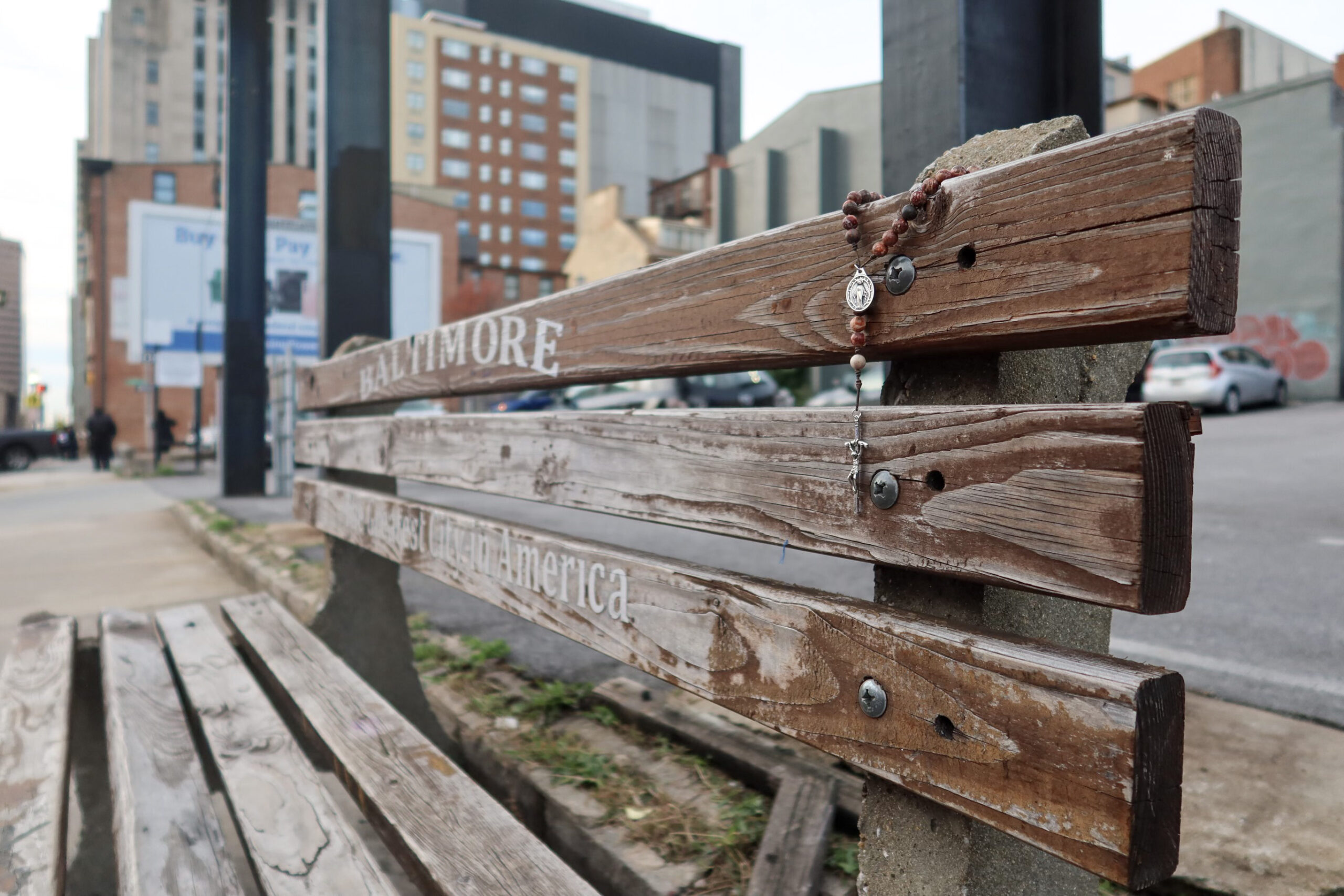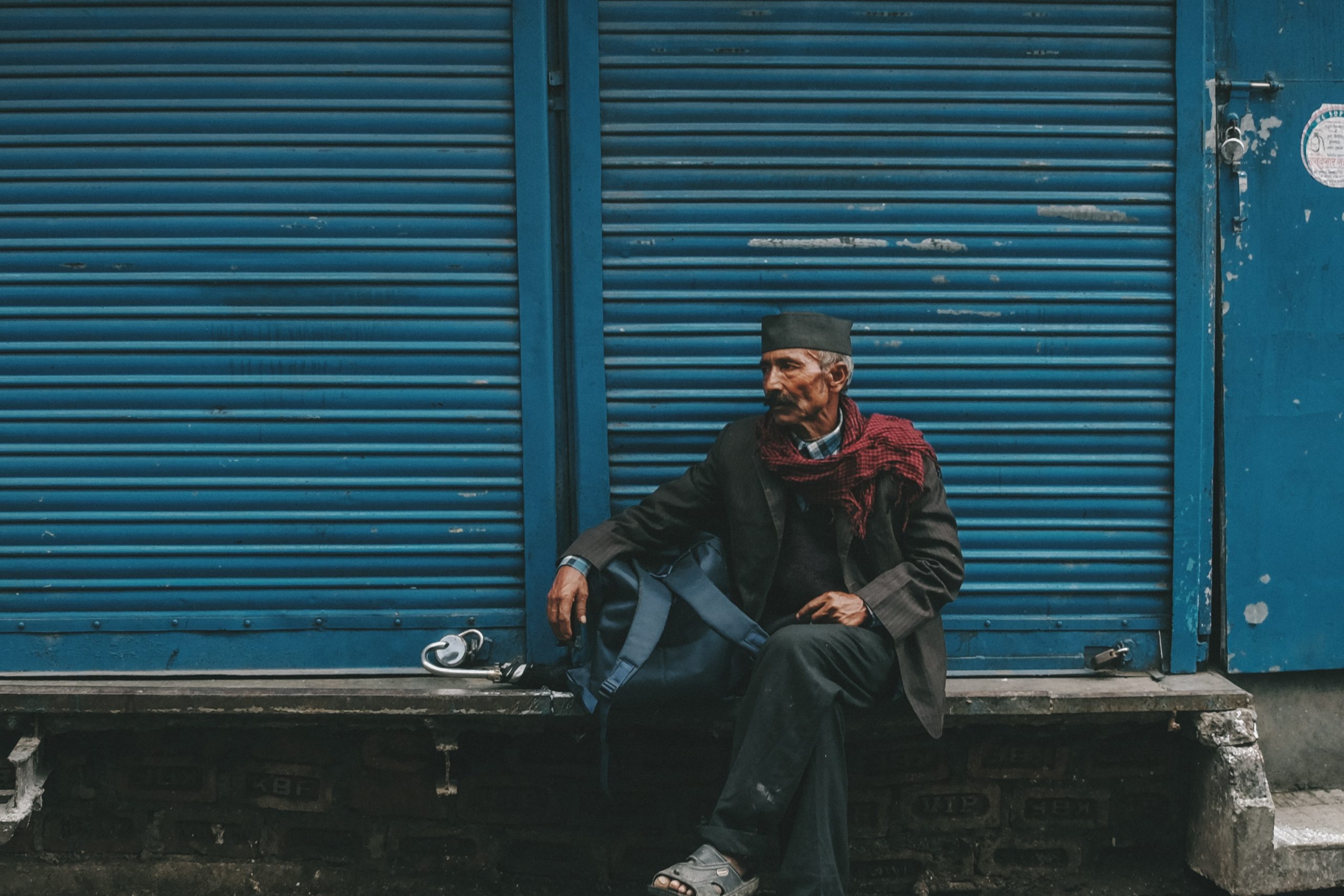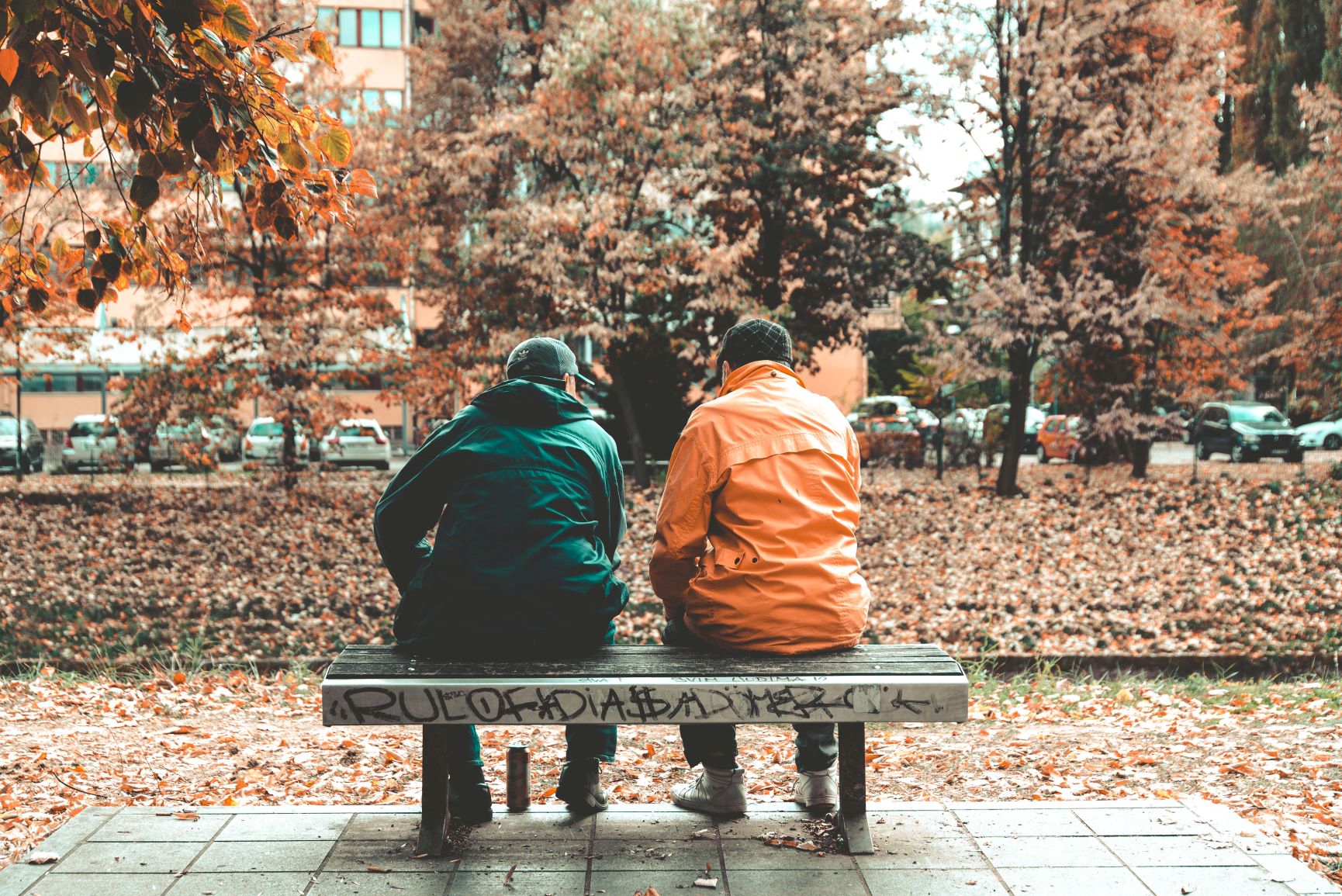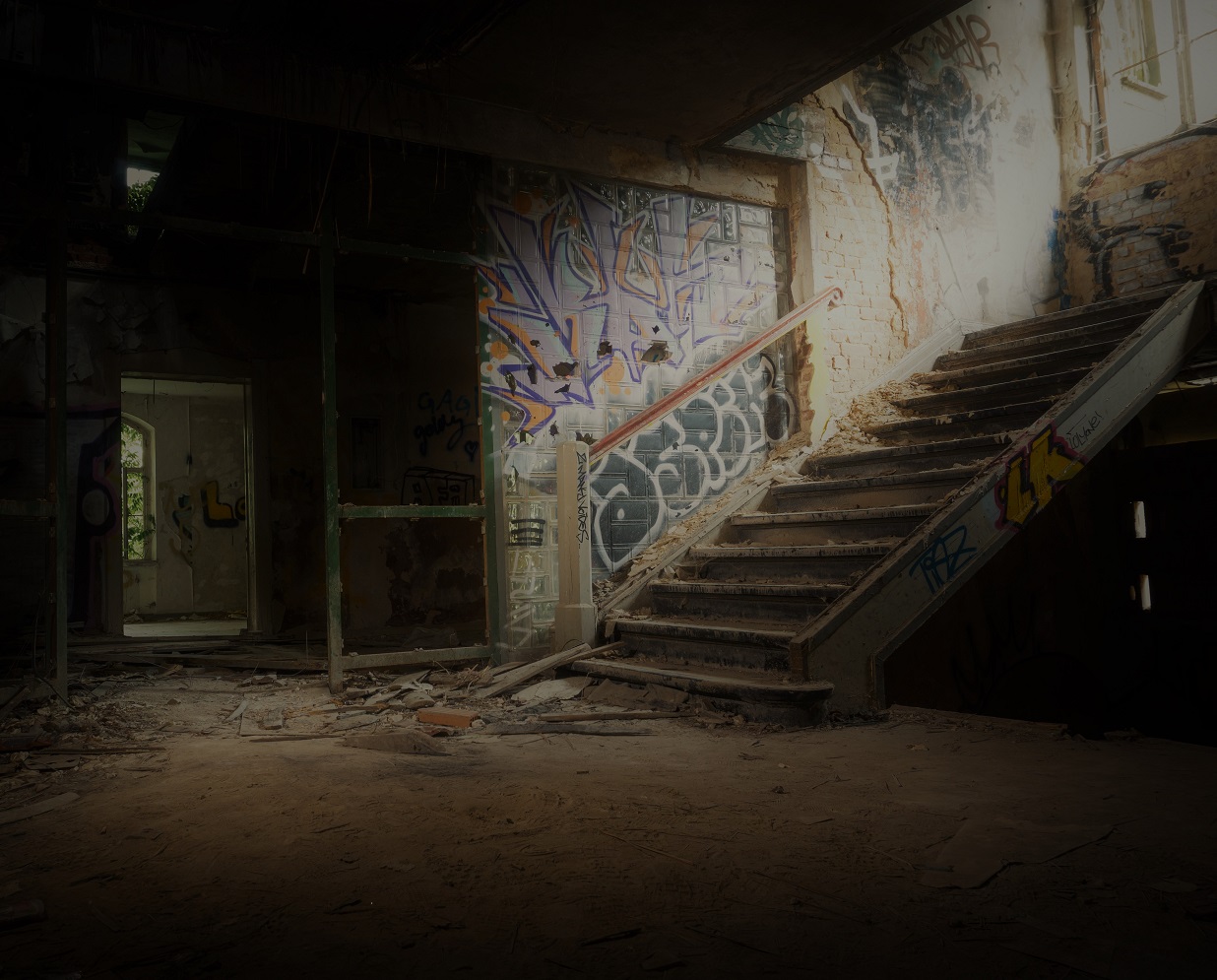In the letter of St. James we find what might be the thesis statement for Catholic charity work. The “social justice” part of the Church, if you will.
“What does it profit, my brethren, if a man says he has faith but has not works? Can his faith save him? If a brother or sister is poorly clothed and in lack of daily food, and one of you says to them, ‘Go in peace, be warmed and filled,’ without giving them the things needed for the body, what does it profit? So faith by itself, if it has no works, is dead.” Jas. 2:14-17
I had an excruciating (to my pride, anyway) experience of this on my way to the chapel one afternoon, early on in my time at Source. I had just made a chocolate protein shake (body + spirit, you know) and was shaking it up as I walked the block from the mission house to the church for Adoration. At the corner by the church I met a young man who was desperately ill with the heat and dehydration and probably some substance abuse. As I recall, he was pretty out of it, and he looked at me and asked me for money. I said I didn’t have any. He asked for food.
I hadn’t touched my shake yet. Do I really have to do this, Lord? was my very missionary thought. His answer: do you love Me? I gave him the shake. He swallowed it pretty quick, and there was, I admit, a bit of chocolate running down his chin. Gross. But something was released in my heart. It was only a temporary fix for this man’s problem. But it was love. And God wanted it. There are nuances. There are boundaries. But at some point, we must love our neighbor when his need is so obvious. That is at least part of the meaning of St. James. And love of neighbor most important, most Catholic part of social justice.
But the term “Social Justice” doesn’t do justice to love of neighbor. The Catholic reality is always deeper and more real than its purely secular equivalent. I worry that so say “social justice” is to propose on some level the worldview that sees the primary issue in human relationships as a sort of class warfare. There are oppressors, and there are oppressed, and the way we fix the world is to free the oppressed and tear down the oppressors. This can be a real social situation, to be sure, but liberation of the oppressed is not – for the Catholic – primarily a social situation but a spiritual one. The primary enemy is Satan, the “enemy of human nature” as St. Ignatius called him. The primary oppression is sin, and the primary liberation is salvation, that is to say, the definitive restoration and fulfillment of the relationship between each individual human person and God, their Father and Goal. One way of saying it is that the Catholic Christian is always concerned not primarily with justice but with love. And love exercised in human society is, in reality, always three-way: myself, my neighbor, and God.
Every good endowment and every perfect gift is from above, coming down from the Father of lights.” Jas. 1:17
The task of the missionary, and every baptized person, is to love their neighbor. But we cannot do this properly without understanding the Father of Lights. We must know and love God, or we will not understand and be able to love our neighbor.
If we want true and beneficial change in society, we must concern ourselves first with loving God, with receiving His love and then giving ourselves in love back to Him. After this (in theory; in practice it can all happen at once) we work to love our neighbor, to acknowledge his or her inherent dignity as a child of God, and then with God’s grace giving ourselves in love to that person, and to each person God has given us. He did this, notice, without asking our permission, as our true brothers and sisters.
Do you see how this is different from addressing “social justice”? It means that we are not primarily concerned with systems or movements but with persons, with relationships with specific people in which we are not only asked by God, but actually commanded to sacrifice our own desires and preferences in order to love them. And by doing this, we fulfill justice, and go beyond it – which as Christians, we must, for that is the way Christ Himself lives. Indeed this will often lead us to reform on a larger scale, for the sake of the individual persons we love. But still we love persons first, and for this love to be genuine, it must be done in a way that accords with the truth about the human person given us by reason and by divine revelation. When working to reform systems or movements, this is only good if it too is in accord with these divine truths.
“I never look at the masses as my responsibility. I look at the individual. I can love only one person at a time. I can feed only one person at a time. Just one, one, one.” -Mother Teresa
Father James, the Basilica’s rector and out chaplain, says that “we love people where they’re at… but we love them enough not to leave them there.” Our efforts at love of neighbor are therefore not even about restoring material prosperity, for this alone is not sufficient for happiness, nor about restoring a balance of power, but about restoring relationship with God, and this has to be in accord with truth. This is why, although I love and am friends with many men and women addicted to drugs, I do not condone drugs and do what I can to help and encourage my friends thus afflicted to leave their old life and sins behind to strive for freedom and happiness in accord with how God made them. Not only the devotion and prayer of our religion but also its moral life is a part of what we live, and spread, as missionaries.
Returning to our theme – love of neighbor – no authentic moral or societal change can happen unless I make the sacrifice to know and love individual people. That is why at Source we don’t focus on “providing services” to “groups of people” (the city has a lot of those anyway, and we can connect people to them), but on encountering real individual persons, Chris or Joe or Sue or Jay or Debbie or Tamara, not “those people.” Because God didn’t create “humankind,” but Greg, a specific person. Joe. Maria. A specific man with a name and a history. A specific woman with a soul and dreams and desires. And each person is made for heaven, and I can help get them there.
Most people driving on Mulberry street in Baltimore have seen “the guy outside the Basilica who yells a lot.” He panhandles, he shouts a lot, he drinks a lot of coffee and sleeps right on the sidewalk by the edge of the literally-never-empty road. Basically, he’s always there. It’s his whole life. But he isn’t just some guy. His name is Troy. I know he’s a navy vet, he likes his coffee without cream, with 6 sugars, and he yells not because he is always angry but because, well, he just always yells, even when he’s happy. He also reads the Bible every day. When I met him, it was mostly the psalms, which he read every day out of a little orange pocket Bible he carries with him. Right now he has a bigger Bible, and he told me this morning he is reading John 5. Every day he calls his father, who is still living even though Troy is probably past 60 at this point, and at the end of every conversation he yells “I love you Father” and hangs up. I lent him my phone for this for a long time, until he got his own.
Love of neighbor is a spiritual thing.
Source, and in general the love of neighbor, has a necessary physical element. That is what St. James points out above. But it is primarily spiritual. At Source, we make spiritual friendships with people who lack, above all physical things, genuine human and Divine relationship. Real people have real souls, and actually if their soul is sick or wounded any physical help or healing will be, at best, temporary. That’s why we pray with people, and invite them to get to know Jesus better, either through prayer with us, or if they’re able, a more sustained relationship of reading the scriptures and spending time in prayer on their own, occasionally with joining us for prayer and learning at the parish. Because their souls, whether they know it or not, need God to be healthy and progress toward true and total healing, soul and body.
Certainly we do need to have boundaries as missionaries. And we do refer our friends to services that can help. Those services and the people who staff them are important! And actually, it seems that in our city there are plenty of places to go. One man on the street told me, “If you go hungry in Baltimore it’s your own fault, there’re so many places to get free food….” But, the physical and spiritual reality is that most of our friends on the street are deeply wounded in ways that prevent them from having the self-confidence, the willpower, and the fortitude needed to persevere in programs that can help them. Sometimes, because their life is so unstable and so many physical dangers and poisonous habits are a regular part of their daily lives, they don’t have the energy to seek out food, water or shelter.
I have seen people betray our trust, occasionally steal things from us, lie about their addictions, try to cross boundaries. But I have also seen people go to confession after years away, make the leap to detox and rehab and a new life off the streets, come to Mass with us after years in prison with no religion and no true friends, and then go to disciple others still enslaved to sin and addiction. As missionaries we rely on friendship and prayer to break into this cycle of destruction, because they restore the two most fundamental things in every single human person’s life: Love of God… restored by prayer… and love of neighbor… restored by friendship.
And this is, I think, the heart of love of neighbor as I have discovered it here at Source of All Hope: to follow the Great Commandment of Christ, which is, in fact, to “love the Lord your God with all your heart, all your mind, and all your strength … and love your neighbor as yourself.”
When a Catholic, missionary or not, loves his neighbor, sacrifices for his neighbor, does good to his neighbor, becomes a friend for his neighbor, he helps himself, because he is loving, and he helps the other person, because they know that they are loved. When we love others in accord with the truth about their being, we heal and restore their true sense of self, and that is a direct result of “loving neighbor as yourself.”
Norm, who I wrote about last time, told my street team, “you are my family now.” Another friend told us, “I struggled with self esteem already, then I relapsed after 9 years clean, I went to jail, I don’t have any strength left for all of that… I’ve tried to kill myself….” He can’t reach his family by phone anymore so we brought him things to write and send a letter. His eyes filled up with tears and he said, “man, that’s so… I can’t believe you would take the time to do that… you are real friends and I know cuz you do stuff like that… people don’t do stuff like that….”
The intensity of reaction of our friends on the street speaks for itself of the reality of love of neighbor, when it proceeds from love of God. God did not wait for us to repent before He loved us.
“But God shows His love for us in that while we were yet sinners Christ died for us.” Romans 5:8
Master, which is the greatest commandment in the law? Jesus said to him: Thou shalt love the Lord thy God with thy whole heart, and with thy whole soul, and with thy whole mind. This is the greatest and the first commandment. And the second is like to this: Thou shalt love thy neighbour as thyself. On these two commandments dependeth the whole law and the prophets. Matthew 22:36-40






Greg, this makes me so happy! I love what you all are doing and the way you are radically living the Gospel.
This entire essay is powerful, and especially this: “The primary oppression is sin, and the primary liberation is salvation, that is to say, the definitive restoration and fulfillment of the relationship between each individual human person and God, their Father and Goal.”
And this: It was only a temporary fix for this man’s problem. But it was love. And God wanted it.
Your words challenge me today. Thnak you.